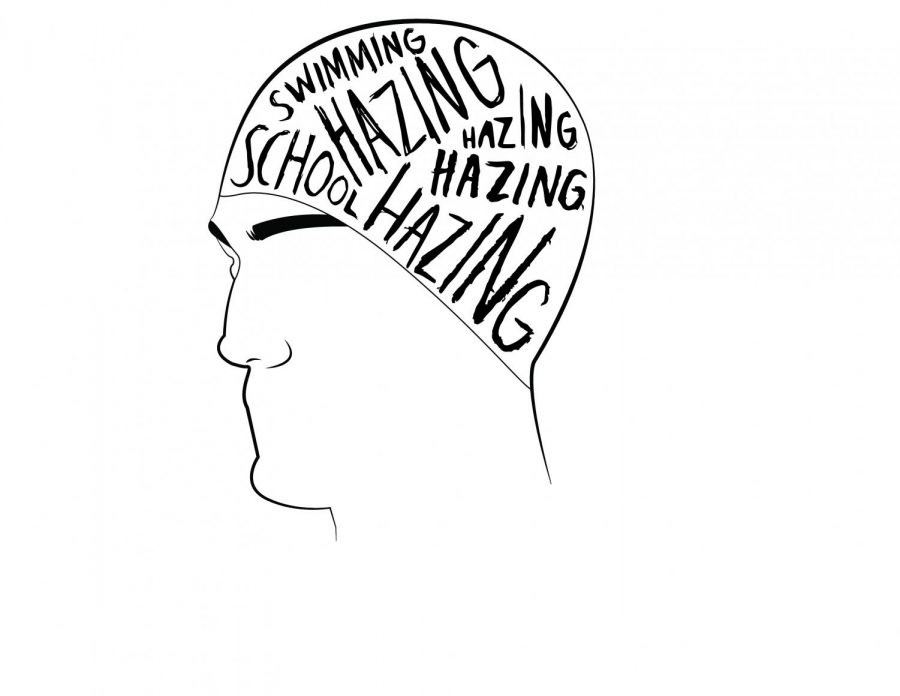Title IX case ruling finds swim team violated policies including hazing, sexual harassment and sexual assault
April 9, 2015
Two separate investigations involving members of the WKU swim team have found individuals under multiple violations—regarding hazing, drug paraphernalia and sexual assault.
Bowling Green Police Department’s investigation of the hazing allegation filed by former swim team member Collin Craig has concluded. In the report, BGPD officials obtained a search warrant for 1303 Chestnut Street, the address of where the hazing was reported to occur.
Two beer kegs, two marijuana grinders, two marijuana pipes, one pill bottle with marijuana stems and five picture boards full of various photographs were among the items seized during the search from the house’s residents.
Multiple electronics, including several game consoles, cell phones and flash drives were also seized.
According to the report, Huda Melky, director and Title IX Coordinator for WKU, met with BGPD in late February to view the picture boards. The picture boards were a photo collage of what appeared to be various students that were highly intoxicated to the point of vomiting and passing out.
A Title IX investigation was then started in response to BGPD’s findings. Title IX deals with equal treatment of sexes and expands into sexual assault and harassment.
Some of the photographs depicted intoxicated individuals that were nude or partially nude placing their buttocks on other individuals, according to the BGPD report. The photographs also showed individuals with a penis drawn on them, the words “insert dick here” with an arrow drawn to the mouth, the word “nigger” written on an individual that appeared to be passed out and females passed out in various positions, in one of which a female is passed out in the bathroom with her underwear pulled down.
The BGPD investigation concluded on Feb. 26. The Title IX case was finalized April 6, and Melky disseminated a memorandum with her findings shortly after.
The summary judgment completed by Melky and Title IX deputy Joshua Hayes said individual members of the team were pressured to drink underage, subjected to calisthenics—called the “freshman ‘fuck around,’” according to the report—and endured mental abuse brought around by “taping and replaying embarrassing or compromising activity in order to subject the individual to ridicule.”
“The resulting hostile environment was created not only at ‘the party house’, but within the team itself,” the ruling said. “This culture of unruly conduct also led to an environment conducive of individuals being incapacitated due to excessive consumption of alcohol, underage drinking, and at least a high probability that alcohol was offered to and accepted by high school recruits.”
The Title IX investigation also concluded that swim team Head Coach Bruce Marchionda knew about the hazing and sexual harassment since spring 2012 based on an email he received from a former swimmer.
The investigation concluded that disciplinary measures were “often inconsistent, and often handled during the fall semesters when major competitions and championships were not at stake,” the document said.
While the NCAA frowns on hazing, no anti-hazing policies exist in its bylaws. The organization redirects each incident to institutional policies to handle on a case-by-case basis.
However, the NCAA does have Hazing Prevention Policy standards. The documents say the role of coaches to prevent hazing is crucial.
“Accept this responsibility as part of your job,” the manual said. “Hazing incidents that end in tragedy or a lawsuit can ruin the careers of athletes and coaches! One hour at the start of each season on hazing prevention could prevent a season of disaster. Be emphatic, be patient, but be persistent in your attempt to erase this kind of activity from athletics and all of our campuses.”
The NCAA also tells coaches to “spell out the consequences for non-compliance” on and off the field of play.
The Title IX report recommended that individual students should be referred to Office of Judicial Affairs for further action.
Vice President of Student Affairs Howard Bailey declined to comment on the next steps for the students involved, even on preexisting policies to handle Title IX investigations.
“I have the report, and it alleges student behaviors,” he said. “That is the case and I cannot discuss that.”
The Title IX report also mentioned that Athletic Director Todd Stewart should “determine the appropriate next steps regarding team leadership,” and that Stewart should “consider the involvement of the swim team from an organizational perspective.”
Swim team Coordinator for Media Relations Whitney Tarpy declined to comment on the issue. Stewart could not be reached by press time for a statement.
Richard Miller, vice provost and chief diversity officer, said his title includes overseeing the policies and procedures used in Title IX cases among other areas, like Affirmative Action. Miller noted the federal Title IX mandate allows for each university to craft its own policies and style within a national framework.
“I think the Title IX investigation was according to their own structure,” he said. “It followed its own policies and procedures. I think it was according to their role and responsibility, and [it] met all the guidelines associated to the Title IX standards.”
President Gary Ransdell said the news alarmed him, but it will be addressed.
“I have serious concerns,” Ransdell said. “Todd [Stewart] and I will talk about it… We are taking it very seriously and will address it… It’ll take a little time to deal with it, but we’ll deal with it.”




















![Students cheer for Senator at Large Jaden Marshall after being announced as the Intercultural Student Engagement Center Senator for the 24th Senate on Wednesday, April 17 in the Senate Chamber in DSU. Ive done everything in my power, Ive said it 100 times, to be for the students, Marshall said. So, not only to win, but to hear that reaction for me by the other students is just something that shows people actually care about me [and] really support me.](https://wkuherald.com/wp-content/uploads/2024/04/jadenmarshall-600x422.jpg)




